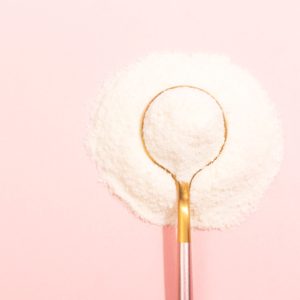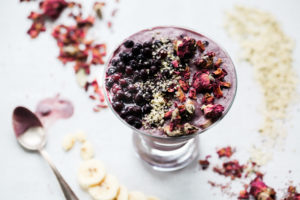Welcome to
the Blog
Replete Wellness
RW
The Truth About Collagen

FYI, beauties; collagen comprises almost 30% of the total protein content in the human body and it is the major structural component of skin, hair, nails, joints and bones. An abundance of well-designed research shows that these tissues can be maintained or improved through supplementation, however, not all collagen supplements are created equal.
There are two factors that allow collagen supplements to selectively promote collagen production in the skin, hair & nails. The first factor is the molecular weight of the collagen peptide chain and the second factor is the specific type of amino acid sequence. When these factors are properly controlled then the supplemental collagen peptide can directly stimulate your own endogenous collagen production.
High quality, professional grade collagen supplements also control for the stability of the amino acid sequence. Our most commonly prescribed collagen supplement at replete wellness as a molecule of proline located at or near the end of each peptide to better resist the action of digestive enzymes through strong bonds; this allows ~10% of peptides to be absorbed intact and used at the cellular level vs. other products on the market that are mostly denatured through the digestive tract.
Sourcing also matters! We prescribe only type I & III collagen from Brazilian and European, pasture-raised, grass-fed cattle. These peptides are guaranteed free from gluten, wheat, dairy, soy and eggs. Poorly sourced collagen supplements from non-organic cows can also contain high levels of glyphosate, an herbicide & serious gut-destroyer. Collagen in particular is a problem when it comes to glyphosate levels since it contains high levels of a protein called glycine which is structurally similar to glyphosate leading to extra high concentrations in the connective tissues are cows that are fed pesticide-rich foods, or live near crops that are abundantly sprayed with glyphosate.

A Bit of Collagen Research
- Visibly reduced fine facial wrinkles after 4 weeks and 8 weeks, with benefits lasting at 12 weeks (4 weeks post treatment cessation)
- Increased skin elasticity by 18% and increase collagen content of skin by 65% after 4 weeks
- Significant improvement in skin elasticity that was held until 4-weeks post treatment cessation and was more pronounced in women > 50 years of age
- More isn’t always better, no additional benefits are seen above 5 g/day
- Reductions in cellulite content of the skin after 3 months & increased dermal density
- Less chipping (nail peeling, nail edge irregularity and nail resistance) after 2 months. Faster nail growth after 3 months
- Improved post-surgical healing with 5g/day for 45 days in ‘normal’ group and 10g/d for 90 days in those with poor healing or complicated wounds
- Statistically significant increase in bone mineral density and collagen content in joints vs placebo

Foods that increase collagen
- Fish
- Chicken
- Eggs
- Citrus fruits
- Berries
- Red and yellow vegetables
- Garlic
- White tea
- Leafy greens
- Cashews
- Avocados
- Organic Soy
- Herbs that help to produce collagen (gotukola, ashwagandha)

References
- Proksch E et al. Skin Pharmacol. Physiol. 2014;27(3):113-119
- König et al. Nutrients 2018;10:97
- Schunck M et al. J Med Food. 2015;18(12):1340-8.
- One-Way ANOVA, Fischer post-test, publication pending
- Knefeli et al. Nutrafoods. 2017; 9-12
Good post.